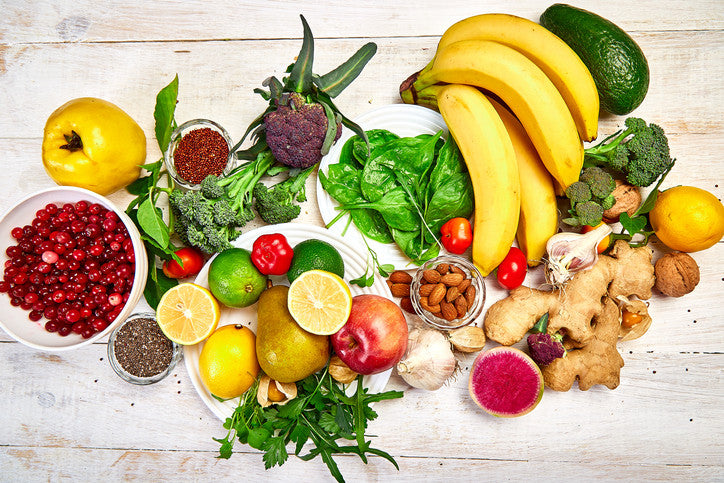
What Are Micronutrients? Best Food Sources for Vitamins A to Z?
Share
Micronutrients are essential nutrients that the body requires in small quantities to function properly. These include vitamins and minerals, and they play crucial roles in various bodily processes, such as metabolism, immune function, and overall health. Here's a list of some important micronutrients and the best food sources for each:
1. Vitamin A: Vitamin A is important for vision, immune function, and skin health.
- Food Sources: Sweet potatoes, carrots, spinach, kale, butternut squash, and liver.
2. Vitamin B complex (includes B1, B2, B3, B5, B6, B7, B9, B12): These vitamins are involved in energy metabolism, red blood cell formation, and nervous system function.
- Food Sources: Whole grains, beans, lentils, nuts, lean meats, fish, eggs, dairy products, and leafy greens.
3. Vitamin C: Vitamin C is an antioxidant that supports the immune system and helps with collagen production for healthy skin and tissues.
- Food Sources: Citrus fruits (oranges, lemons, grapefruits), strawberries, kiwi, bell peppers, and broccoli.
4. Vitamin D: Vitamin D is crucial for bone health and immune function.
- Food Sources: Fatty fish (salmon, mackerel, tuna), fortified dairy products, fortified cereals, and sunlight exposure.
5.Vitamin E: Vitamin E is an antioxidant that helps protect cells from damage and supports skin health.
- Food Sources: Nuts (almonds, peanuts), seeds (sunflower seeds), vegetable oils (olive oil), and spinach.
6. Vitamin K: Vitamin K is essential for blood clotting and bone health.
- Food Sources: Leafy greens (kale, spinach, broccoli), Brussels sprouts, and green tea.
7. Calcium: Calcium is critical for strong bones and teeth, muscle function, and nerve signaling.
- Food Sources: Dairy products (milk, cheese, yogurt), fortified plant-based milk, tofu, leafy greens (collard greens, bok choy), and almonds.
8. Iron: Iron is essential for transporting oxygen in the blood and overall energy production.
- Food Sources: Red meat, poultry, fish, beans, lentils, fortified cereals, and spinach.
9. Zinc: Zinc is important for immune function, wound healing, and DNA synthesis.
- Food Sources: Oysters, beef, chicken, beans, nuts (cashews), and dairy products.
10. Magnesium: Magnesium is involved in muscle and nerve function, bone health, and energy metabolism.
- Food Sources: Nuts (almonds, cashews), seeds (pumpkin seeds), whole grains (oats, brown rice), and leafy greens.
11. Selenium: Selenium is an antioxidant that helps protect cells from damage and supports thyroid function.
- Food Sources: Brazil nuts, seafood (tuna, shrimp), poultry, and whole grains.
12. Copper: Copper is important for iron metabolism, connective tissue formation, and brain health.
- Food Sources: Organ meats (liver), seafood (crab, lobster), nuts (cashews), and seeds (sesame seeds).
Click here for Vitamins & Minerals Complex - Multi Vitamins formula for Women
Click here for Vitamins & Minerals Complex - Multi Vitamins formula for Men
It's important to maintain a balanced diet that includes a variety of foods to ensure you get an adequate intake of these micronutrients. If you have specific dietary restrictions or health concerns, consider consulting a healthcare professional or registered dietitian for personalized advice on meeting your micronutrient needs.
Contact us for daily balanced meal recommendations
Click here for Calories and Protein Calculator
